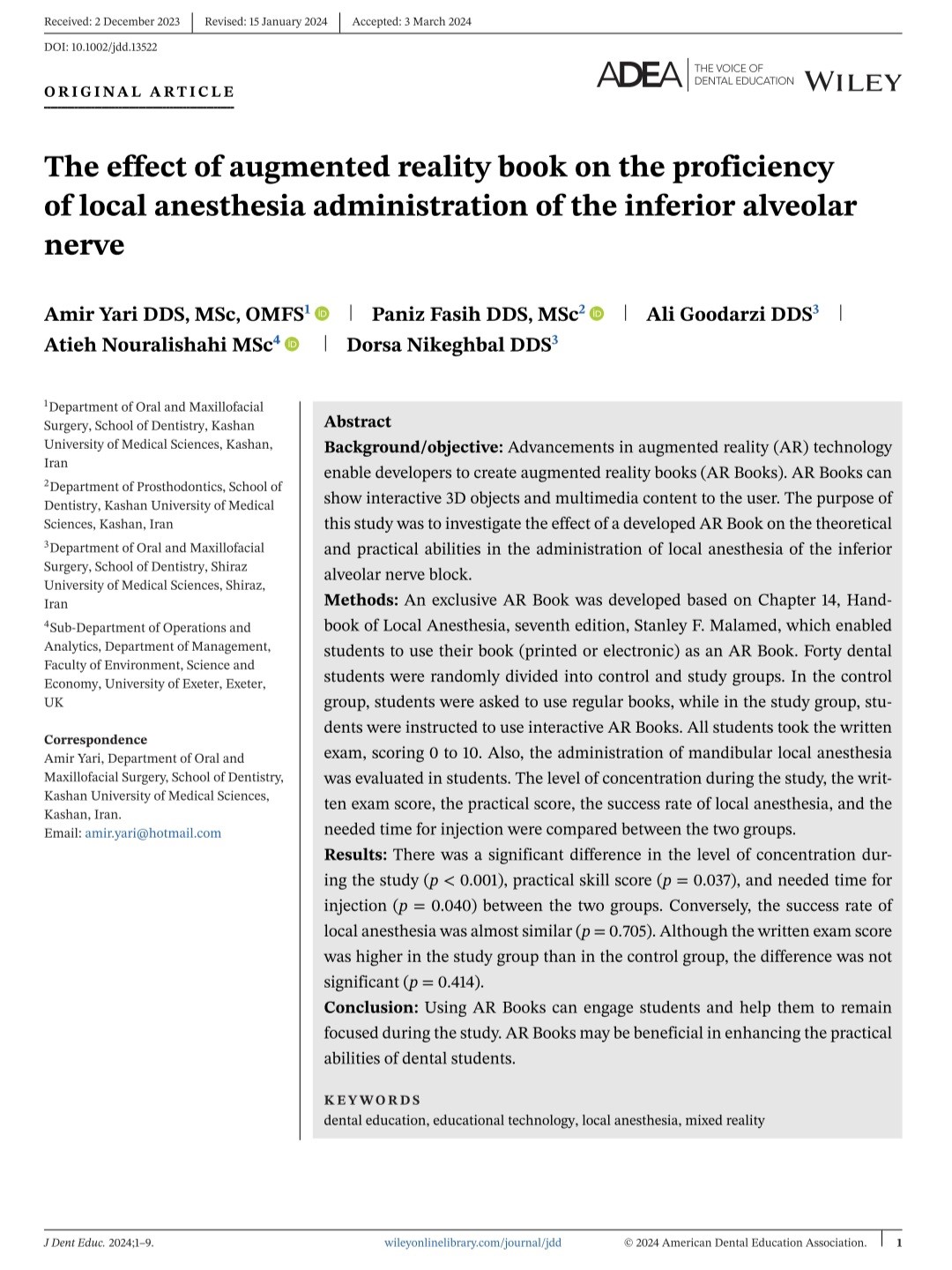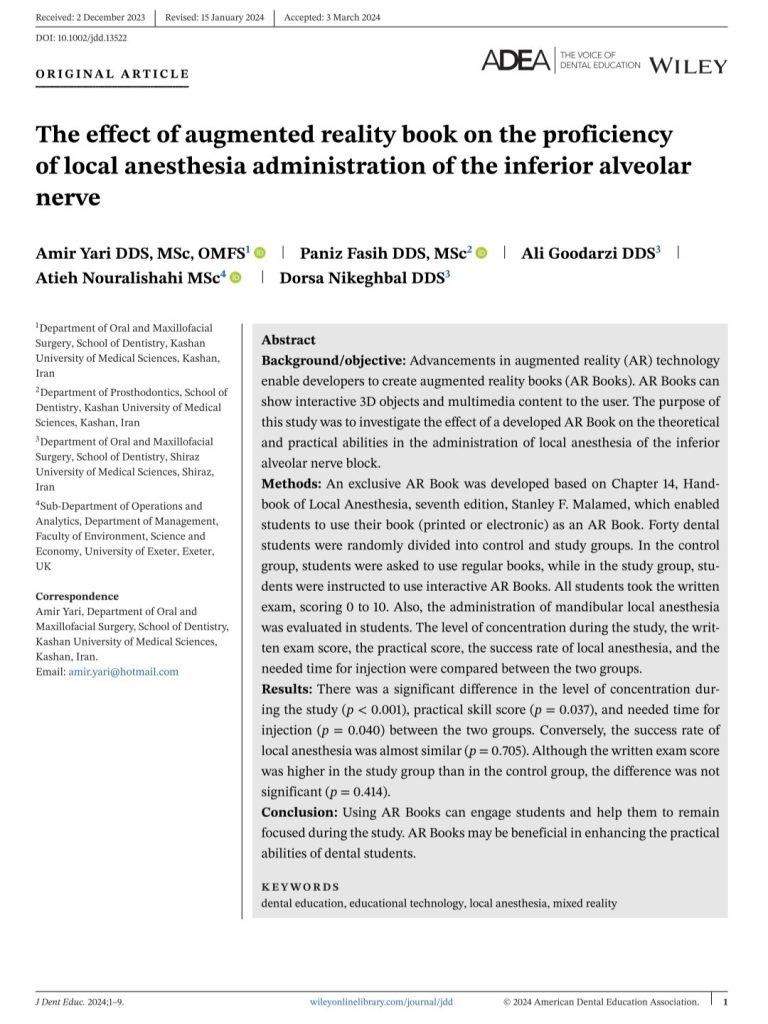
New publication by Dr. Amir Yari on the journal of American dental education association

Amir Yari DDS, MSc, OMFS
Background/objective
Advancements in augmented reality (AR) technology enable developers to create augmented reality books (AR Books). AR Books can show interactive 3D objects and multimedia content to the user. The purpose of this study was to investigate the effect of a developed AR Book on the theoretical and practical abilities in the administration of local anesthesia of the inferior alveolar nerve block.
Methods
An exclusive AR Book was developed based on Chapter 14, Handbook of Local Anesthesia, seventh edition, Stanley F. Malamed, which enabled students to use their book (printed or electronic) as an AR Book. Forty dental students were randomly divided into control and study groups. In the control group, students were asked to use regular books, while in the study group, students were instructed to use interactive AR Books. All students took the written exam, scoring 0 to 10. Also, the administration of mandibular local anesthesia was evaluated in students. The level of concentration during the study, the written exam score, the practical score, the success rate of local anesthesia, and the needed time for injection were compared between the two groups.
Results
There was a significant difference in the level of concentration during the study (p < 0.001), practical skill score (p = 0.037), and needed time for injection (p = 0.040) between the two groups. Conversely, the success rate of local anesthesia was almost similar (p = 0.705). Although the written exam score was higher in the study group than in the control group, the difference was not significant (p = 0.414).
Conclusion
Using AR Books can engage students and help them to remain focused during the study. AR Books may be beneficial in enhancing the practical abilities of dental students.